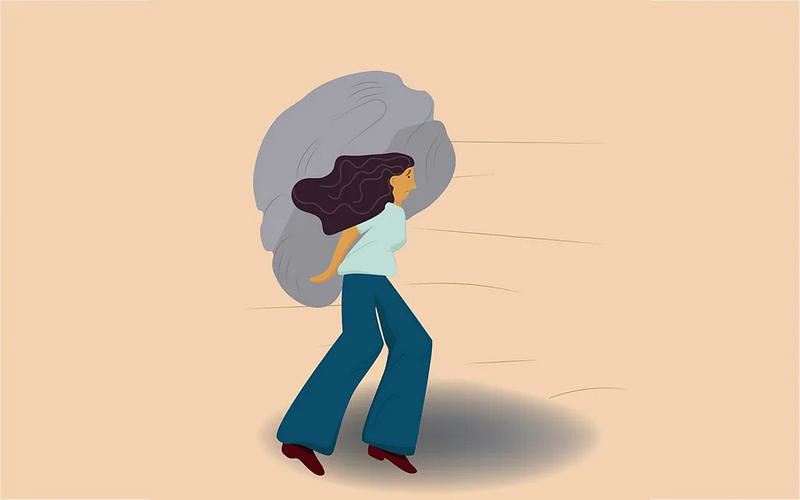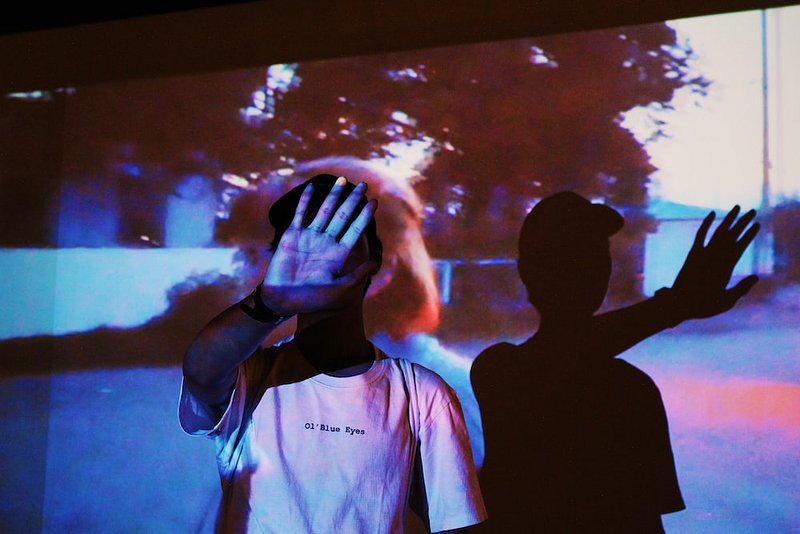Projection and Reflection
What do you think would make the world a better place?

What do you think would make the world a better place?
Some people might say “being environmentally sustainable”; some might say “being generous”; a few ambitious lads may throw out the mighty remark of “world domination”. All those answers hold weight (world domination subjectively so), but for me? I think self-awareness is the key to a better world, one of its crucial lessons conveyed in the quote below.
“Your perception of me is a reflection of you,
my reaction to you is an awareness of me.”
What you think and feel about others is a reflection of you. For example, if you think people who are active in your work discussions are “lame try-hards trying to show off”, this implies you see being outspoken in workplaces as something shameful. That would be an example of you projecting your beliefs onto others, a reflection of the current you.
One of the greatest lessons I’ve learned in life is that we perceive the world through a warped lens, shaped and distorted by our past experiences, our current level of knowledge, cultural beliefs and more. There are two stories: the truth, and what we perceive as the truth. Our perception of reality is warped because of these factors, but this also means that through observing and being aware of the lens we see the world through, how we see other people and ourselves, we can learn more about who we are.
Following the “try-hard” example, beliefs like that tend to originate from negative experiences we had when we were younger. Maybe when you were a kid, you loved being active in classes. It was loads of fun. However, if you were bullied for this, or observed others being made fun of for it, this could lead to you learning not to be active during work discussions when you’re older, in an attempt to prevent facing the same social ostracisation that you witnessed before.

Perhaps deep down inside, you actually have a desire to be active in your workplace; to be outspoken, to voice your ideas, and be heard. This is a trait you admire and would secretly love to embody. However, because you have a fear of how others will perceive you, you might suppress your real desires: being meek in discussions or acting like you’re uninterested in participating. You don’t actually think being outspoken is lame, you just use that belief to justify suppressing the frustration of not doing what you actually want. You might also feel restrained and disempowered, because you may not be living a life that is true to you due to the fear you harbour. If you take time to reflect on this, you’d see that this is a sign, or not a “reflection”, that you have some trauma you need to heal from. (I don’t want to use the word “you” too much, but just remember this is an example.)
If you weren’t aware of how this trauma affects you, you may start to resent the outspoken colleagues in your workplace. If how you feel is not acknowledged in a healthy way, or if you try not to acknowledge it at all, you might end up lashing out at others, getting angry at them for “no reason”. If we were more self-aware, we would be able to recognise that the anger and frustration we feel is actually due to an internal conflict within ourselves. If we recognise this, it would allow us to take accountability for our own feelings and choices, so we can target the source of our frustrations instead of trying to suppress how we feel and hurting people in the process.
The ability to recognise how you perceive the world, whether you are truly seeing someone for who they are or if you are projecting an image of someone else onto them, is a vital skill one needs to achieve emotional maturity and growth. By being aware of how you see and treat others, and why you do so, you can learn more about yourself. You can heal from any wounds you might have not known about, as well as become a more compassionate, authentic and happier person.

If how you feel is a reflection of you, how other people feel is also a reflection of them. One of the key takeaways is this:
“Learn to respond, not react.”
The way other people act or speak is a reflection of them, not of you. Oftentimes, how people treat you is truly not personal. However, how you treat others and how you respond to situations reflects on who you are. You are accountable for your own actions, which are completely in your control, so ensure you are consciously making decisions that align with the person you want to be.
How to tell if you’re projecting and stop
When our fears or insecurities are provoked, it’s natural to occasionally start projecting. According to The Happiness Clinic, some possible symptoms of projection include:
Feeling overly defensive, sensitive or hurt about something someone has said or done.
Feeling highly reactive.
Letting someone get under your skin and irk you in a way that others do not.
Finding it difficult to be objective and seeing things from the other person’s perspective.
When similar situations or your reactivity is a recurring pattern.
Here’s a step-by-step guide on what to do when you notice yourself projecting. Don’t worry if you don’t immediately recognise that you’re projecting on the first few times. Like any skill, these things take practice. The more you try, the better you get!

Step away from the situation. Try to take a step back and give yourself some time to allow your defensiveness to fade so you can consider the situation more rationally. Give yourself the space to process what happened.
When considering the situation, describe the conflict using objective terms. Then, honestly describe the actions you took and the assumptions you made when you took that action, and try to objectively describe the actions the other person took and the assumptions they may have made.
Be honest with yourself and ask yourself questions like which part of your past or perception of your own identity is this person triggering? What type of stories are you telling yourself about this person or situation? Question if you feel reactive about it, and if so in what way, and what you want to do. Ask yourself who or what does this person or situation remind you of, and what’s at the core of how you feel right now?
Think about what you can do to take care of yourself and self-soothe in that moment, and do that. Some ways you can self-soothe, release some of your emotions and feel better include taking slow deep breaths whilst visualising yourself being at peace, surrounded by warmth and light, and or having a good, nice bath.
Write down your insights and how you feel. Ask yourself how you can be compassionate whilst also setting at least one healthy boundary with this person/situation. Then, follow through with the intentions and boundaries you’ve set for yourself.
How to tell if someone is projecting onto you

If someone has an unusually intense reaction to something you said or if there doesn’t seem to be a reasonable explanation for how strongly they reacted, it may be a sign of them projecting their insecurities or fears onto you.
According to Psychology Today, a harmful consequence of continual projection is when the projected trait becomes incorporated into one’s identity. The website provides this good example: a father who has never found success in his career may tell his son that he won’t amount to anything and to not even bother trying. The father is projecting his own insecurities onto his son. As a result, his son might internalise this message, and believe that he will never be successful. As one could imagine, internalising such a belief would hurt his self-esteem, and can negatively affect his future if it is not unlearned.
How to respond to projection
In moments where you feel like someone is projecting onto you, it is important to remember that how they reacted is not a reflection of you or your identity. By reminding ourselves of this, we separate our personal identities from other people’s perceptions of us. This can let us be confident of who we are outside of our relationships as well as allows us to live more authentic lives. By detaching and not personalising what others say, we can also become less easily offended and more carefree.
If you ever encounter disrespect, manipulation, rage or any other boundary violations where you are not being treated respectfully, remember that it is a reflection of the other party and not of you. Remind yourself that you are not responsible for another person’s behaviour. However, how you respond is your responsibility. It is within your power to respond in a way that feels right to you, whether you choose to practise non-violent communication, set a boundary, or remove yourself from the situation.

Through self-awareness and understanding the concepts addressed in this article, we can foster a deeper understanding of ourselves, paving the way for self-improvement and discovery. We can unlearn habits and beliefs that no longer serve us, relearn healthy ones, and enjoy living in the moment more often.
Learning more about and practising self-awareness and self-reflection has made me a happier person. I hope it does the same for you.
[Written by: Ruby Seet. Edited by: Teoh Jin]

